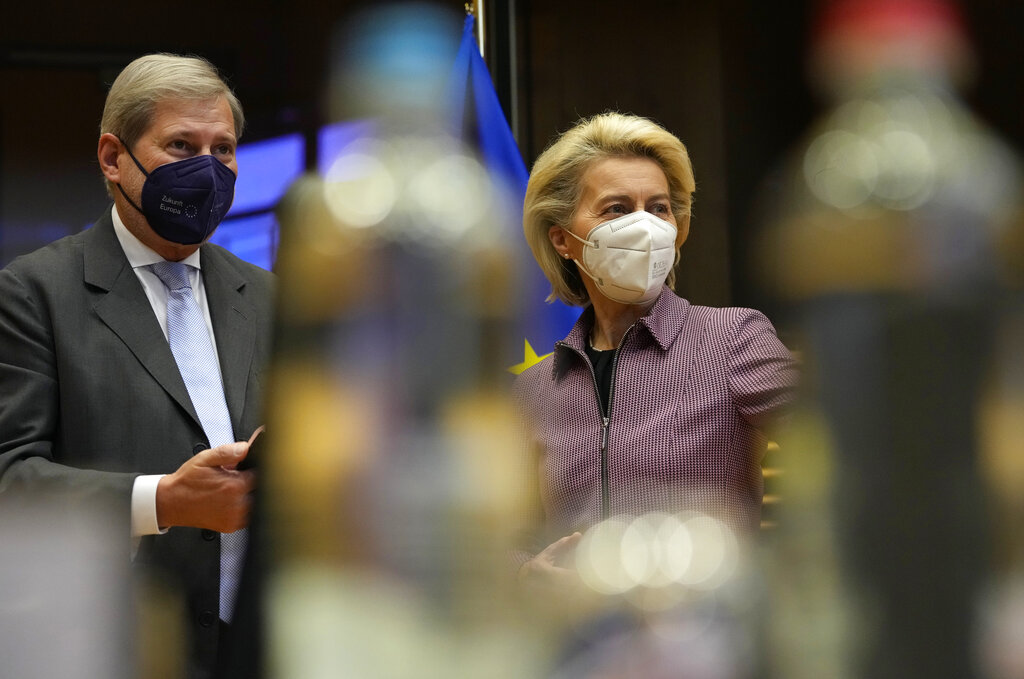EU Budget Commissioner Johannes Hahn announced on Tuesday that the European Commission could propose a freeze on European funds for Poland and Hungary before the Hungarian general election on April 3.
“We must act according to the rules and guidelines and we cannot be guided by the date of the elections,” Hahn said, answering a question from the press about when Brussels could activate against the two countries the new mechanism that allows the European Commission to suspend European funds when it considers that a country does not respect the rule of law.
The governments of Budapest and Warsaw have challenged this mechanism in the EU Court of Justice (CJEU), whose verdict is expected on Feb. 16. The CJEU’s Advocate General has already recommended a decision that is not in favor of the two governments, and the European court’s ruling usually takes into account the lawyer’s recommendations.
Poland and Hungary’s conservative governments have regularly clashed with Brussels in recent times for perceived violations of the rule of law. The countries have upheld traditional, Christian values when it comes to the LGBT community, and has rejected the Western liberal governments will to welcome mass immigration into Europe, as well as challenging the supremacy of EU law over national legislation.
A number of infringement proceedings and actions before the Court of Justice of the EU (CJEU) have been launched against them by the European Commission, which for the same reasons has not yet approved the recovery and resilience plans (PNRR) of the two countries. Budapest and Warsaw accuse the European Commission and the CJEU of practicing double standards and assigning competences not provided for in the EU treaties.
The European Commission asked Poland and Hungary in November to clarify how they intend to address the concerns. Brussels has asked Warsaw to explain the independence of the judiciary, in particular the creation of a disciplinary chamber in the Supreme Court to challenge the primacy of EU law. In the case of Budapest, the EU executive mentions mainly issues related to conflicts of interest and the award of public contracts, claiming that most of the European funds end up being suppliers that have links with the Fidesz party of Prime Minister Viktor Orbán.
Commissioner Johannes Hahn also said on Tuesday that he had not received any response from Poland with the deadline set by the European Commission being Monday, and so he would send a reminder to Warsaw, while for Hungary the deadline imposed by the Commission expires on Tuesday.






